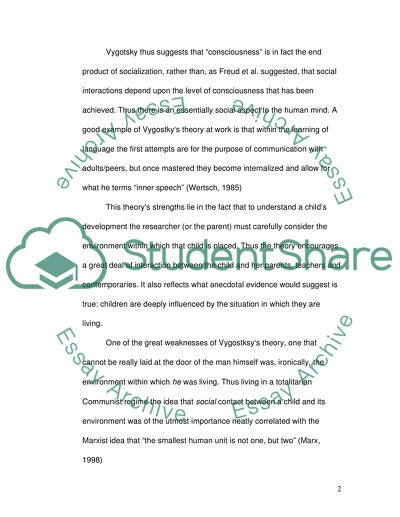Cite this document
(“The Cognitive Development Theories of Piaget and Vygotsky Essay”, n.d.)
Retrieved from https://studentshare.org/psychology/1517317-the-cognitive-development-theories-of-piaget-and-vygotsky
Retrieved from https://studentshare.org/psychology/1517317-the-cognitive-development-theories-of-piaget-and-vygotsky
(The Cognitive Development Theories of Piaget and Vygotsky Essay)
https://studentshare.org/psychology/1517317-the-cognitive-development-theories-of-piaget-and-vygotsky.
https://studentshare.org/psychology/1517317-the-cognitive-development-theories-of-piaget-and-vygotsky.
“The Cognitive Development Theories of Piaget and Vygotsky Essay”, n.d. https://studentshare.org/psychology/1517317-the-cognitive-development-theories-of-piaget-and-vygotsky.


